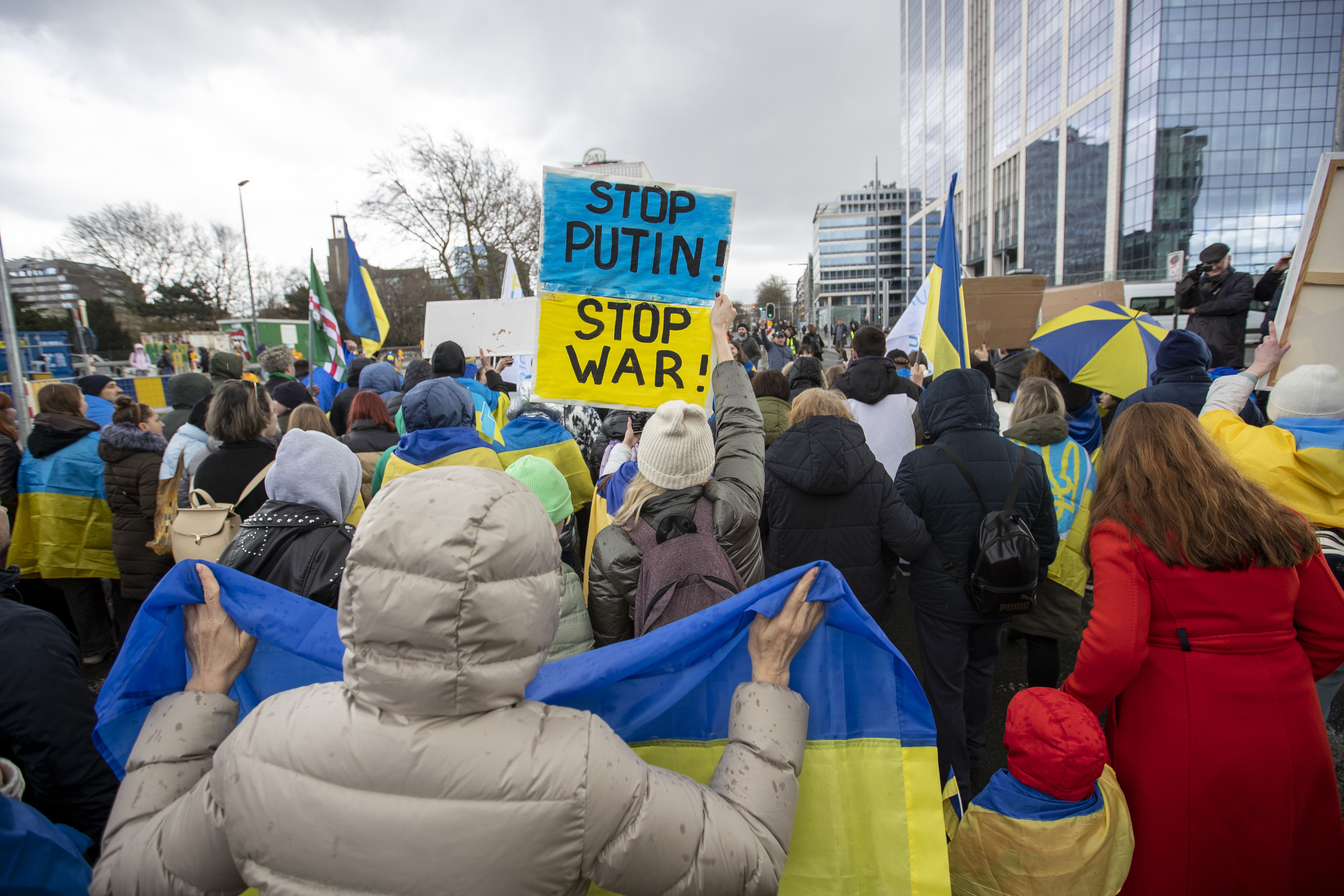Two years of war in Ukraine: 'We failed to act quickly, despite all the lofty declarations,' says expert

More than 10,000 civilians died, 42,000 identified Ukrainian soldiers were killed, and tens of thousands were wounded. This is the grim provisional toll of two years of war in Ukraine. "I think both parties are now so deeply involved in this war and have invested so much in it that they feel that it must not have been in vain," says Lieutenant-Colonel Tom Simoens.
On 24 February 2022, Russian president Vladimir Putin sent his troops across the border in the early hours of the morning for a "special military operation" to "demilitarise and denazify" Ukraine. 'War in Europe' read the headlines the day after the invasion.
Before the war, Eastern European and Baltic countries had warned of Putin's aggression, but elsewhere in Europe, there was disbelief at the invasion. Nevertheless, a broad wave of solidarity quickly emerged. The European Union also came to Ukraine's aid with tanks, armoured vehicles, weapons and ammunition.
28 billion euros in military aid
According to the latest figures, EU member states have already provided 28 billion euros in military aid, of which just over 6 billion euros is financed through the European Peace Facility (EPF). When the EPF was set up in 2021, it was not intended to reimburse military equipment. It was set up specifically as an instrument for conflict prevention and peace-building.
But two years on, peace still seems a long way off. On the Ukrainian side, there have been an estimated 10,378 civilian deaths and 42,152 military deaths. A US intelligence report puts the Russian toll at 315,000 dead and wounded.
Six million refugees
The humanitarian toll of the war is also immense. Some six million refugees from Ukraine have been registered in Europe, and nearly fifteen million Ukrainians need humanitarian aid, including 3.6 million displaced persons.
The entire European defence policy is changing due to the war. French president Emmanuel Macron and German chancellor Olaf Scholz have already called for increased military support for the Ukrainians and higher defence spending. Given the high price tag, alternative sources of funding are being sought.
Defence bonds
The idea of issuing European defence bonds, along the lines of the 'Eurobonds' for the COVID-19 bailout fund, is gaining traction. An approach Belgian prime minister Alexander De Croo also favours.
At the end of February, the European Commission will propose how it believes the European defence sector can be better integrated. The aim is to avoid repeating the scenario in which Europe promised Ukraine 1 million artillery shells but missed its self-imposed deadline. There is also talk of the possibility of having a European Commissioner for Defence in the next Commission.
There must be a broad debate about our priorities
Although there is still a long way to go, European countries seem increasingly aware that they must do more to ensure their defence and, above all, that of Ukraine. De Croo told Radio 1 on Tuesday morning that Belgium would invest 2 per cent of its gross domestic product in defence faster than planned. "There must be a broad debate about our priorities," he said.
But Lieutenant-Colonel Tom Simoens, professor of history at the Royal Military Academy (RMA), says Western European countries are not moving fast enough to build their defence industries. For example, the German arms manufacturer Rheinmetall's first shovel in the ground for a new ammunition factory has only just begun.
I believe that in the future, historians will critically examine the gap between politicians' words and deeds
"The shovel should have been in the ground two years ago. We have failed to act quickly despite all the lofty declarations. I believe that in the future, historians will critically examine the gap between politicians' words and deeds," said Simoens.
A diplomatically negotiated end to the conflict now seems unlikely. "I think both parties are now so deeply involved in this war and have invested so much in it that they feel that it must not have been in vain," said Simoens. "If one party then appears to want to sit down at the table, it may be perceived by the other as a sign of weakness, a signal to accelerate further."
Illustration picture shows a national demonstration in solidarity with Ukraine one year since Russia's invasion of Ukraine, Saturday 25 February 2023, in Brussels. © BELGA PHOTO NICOLAS MAETERLINCK
Related news

